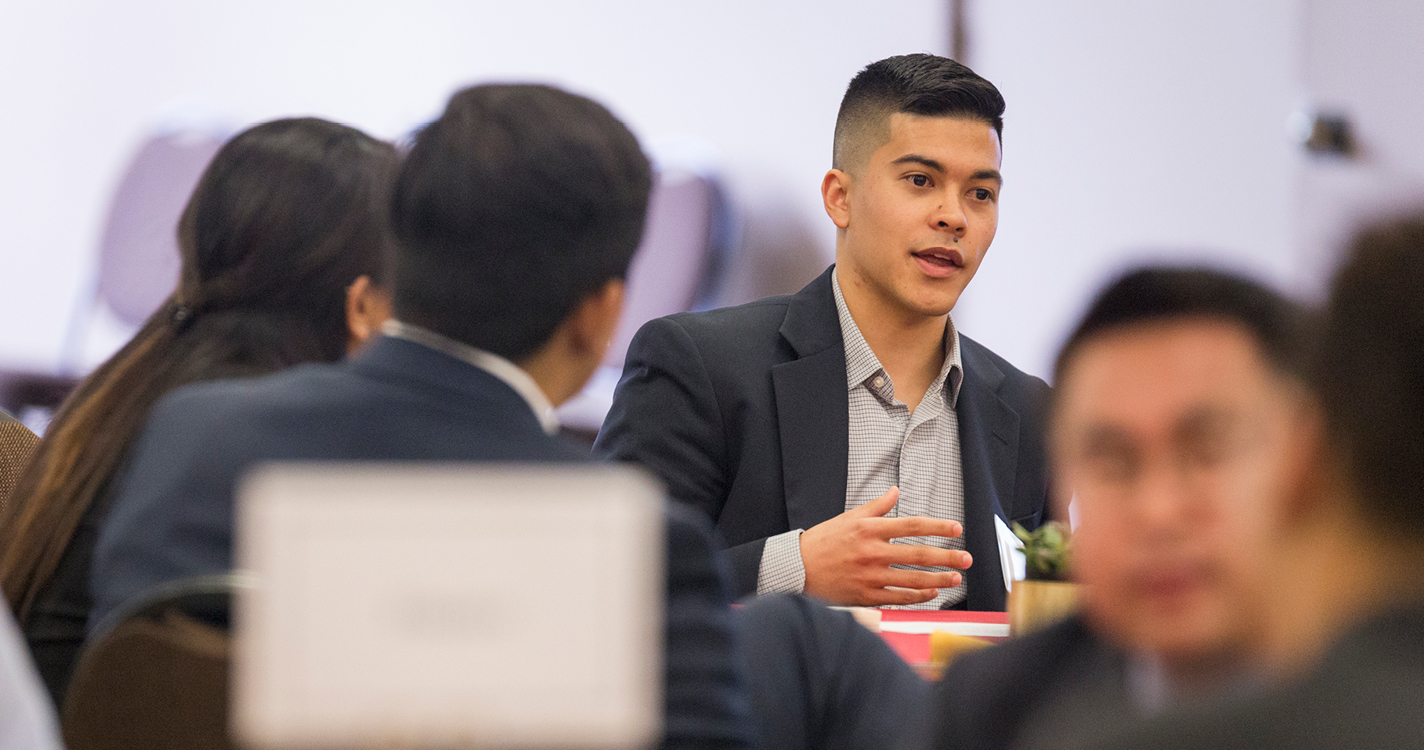Business careers today don’t follow a linear path. Job shifts might skip across industries or even appear to reverse.
That’s not a bad thing. Skip Newberry, president and CEO of Technology Association of Oregon in Portland, said now and in the future, students will need to consider their ultimate destination, what they want to sacrifice along the way and how they’ll keep their options open.
“With multiple crises unfolding every two months now, being able to navigate grey space is very important, as is the ability to understand a lot of different variables,” he said. “And that’s not something you get in a very specialized education system.”
Strong decision-making during a period of great uncertainty is a coveted skill in any industry, and it’s one students interested in business can cultivate now. Business majors can be found at almost any university, but developing the critical thinking, communication, writing and analytical skills essential to every job are best found at one that incorporates arts and science.
Newberry, who has a background in law, economic development and entrepreneurship, said students who want to explore technology and business need more than compelling technical expertise.
“People who end up in leadership roles have to understand the moving parts as they relate to the bigger picture, and I think that’s something that really speaks to a liberal arts training,” he said. “There are so many factors that can impact any given organization.”
Jill Taylor, CEO of Burgerville, would know. She never imagined she’d become leader of the Pacific Northwest food and restaurant company, but her background in public health and songwriting provided her with an unexpectedly useful framework to manage an exceptionally challenging time.
After the pandemic struck in March, Burgerville lost 40 percent of its business in three days. The company had to pivot quickly. Taylor and her team recreated its business model, furloughed employees and bounced back, regaining so far about 25 percent of its loss.
Taylor attributes part of its recovery to employee resilience training, rooted in the Socratic method, she created several months prior. Identifying what drove employees and helping them understand how their life mission aligned with the company’s left them more engaged, able to evolve with the frenetic changes sparked by the coronavirus more easily than Taylor had seen elsewhere, she said.
When Taylor reflects on her career and education — five years as a pediatric nurse, 30 years leading a coaching and a consulting business, a master’s degree in community health and business administration, a songwriting certificate at Berklee College of Music — it demonstrates to her the necessity of a liberal arts education, she said.
Her wide-ranging background prepared her to look beyond the obvious throughout her career. As Burgerville continues to fulfill its vision to make the Pacific Northwest the healthiest region on the planet — including a commitment to regenerative agriculture, supporting the local economy and becoming a remedy to climate change rather than contributing to it — Taylor has sought out unexpected organizations with similar values.
Music has transformed her company’s problems into solutions, too. Songwriting requires knowing individual notes, the chords for harmony and how to structure the chords to bring the song together in the most beautiful way, she said — and she follows that sensibility to find talent, assemble teams and figure out what works and what doesn’t at Burgerville.
Shaped by public health, business and art, Taylor has gained a more holistic perspective on human health, the environment and how to incorporate it into her business. But most importantly, she’s also learned how to learn, she said.
“It’s not just about getting the degree. You have to ask how your education will prepare your ability to cultivate your imagination, and I think a liberal arts education really does that,” she said. “It’s not about the content of what you know, it’s about your ability to imagine a new possibility or the ability to put a whole new way of working on the ground.”

